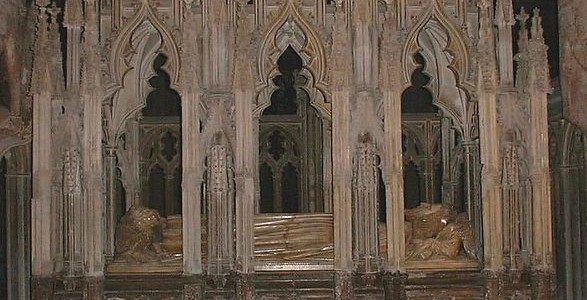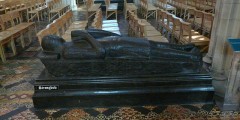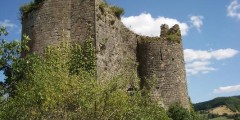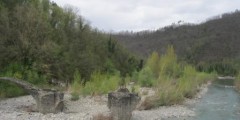The Reign of Edward II: Beyond the Legend
November 28, 2013
Edward II of England (whose tomb in Gloucester Cathedral is pictured here) is probably best known for the supposedly grisly manner of his death in 1327, which was said to have involved a red-hot poker and an intimate orifice. However, even though they generally agree that Edward was murdered in Berkeley Castle in that year, …
Strongbow: the Anglo-Normans in Ireland
October 25, 2013
The first intervention of the Normans into Irish affairs resulted from a bitter local feud that, in 1171, allowed Henry II to become the first English monarch to set foot on Irish soil. This moment was portrayed by historians and writers of the early twentieth-century Irish national movement as a pivotal one: the first step …
The Cathar Heresy: Fact or Fiction?
July 17, 2013
In the 11th century, the Western Christian church began to act against “popular” heresy, that is to say, dissident religious movements involving people at many social levels. By the mid-13th century in France this effort had solidified into the series of courts and inquiries known as “inquisitions ” (medievalists no longer call this collection of …
Dark Age Climate Change
May 14, 2013
In recent years historians have challenged the idea of the “Dark Ages.” From the Renaissance onwards many writers began to think of this period in European history, roughly from the fall of Rome in the 5th century AD up to the first millennium, as an era of social and cultural disintegration, lawlessness and barbarism. Historians …





The Venerable Bede in European Context
November 19, 2013
The Venerable Bede (c. 673-735), monk, theologian and the first historian of the English people, lived at the monastery of St Peter and St Paul in Monkwearmouth and Jarrow in Northumbria on Britain’s north-east coast. While an earlier generation of historians tended to see Bede as living at the ragged edge of Christian civilisation, working …
comments 1
more...